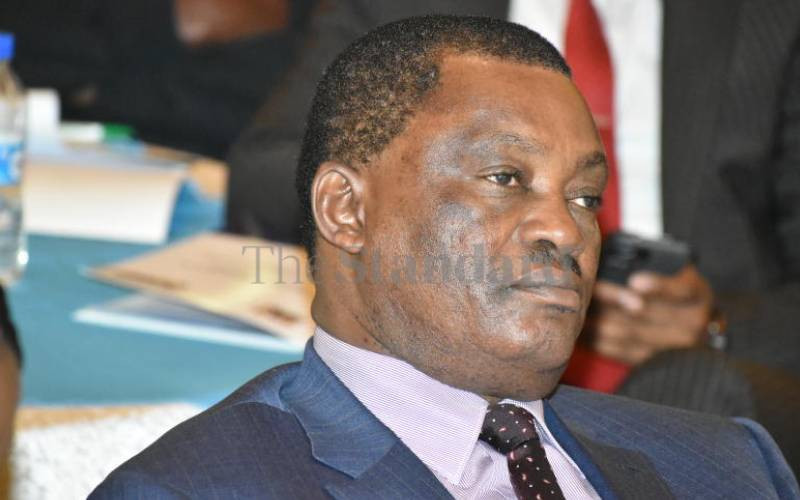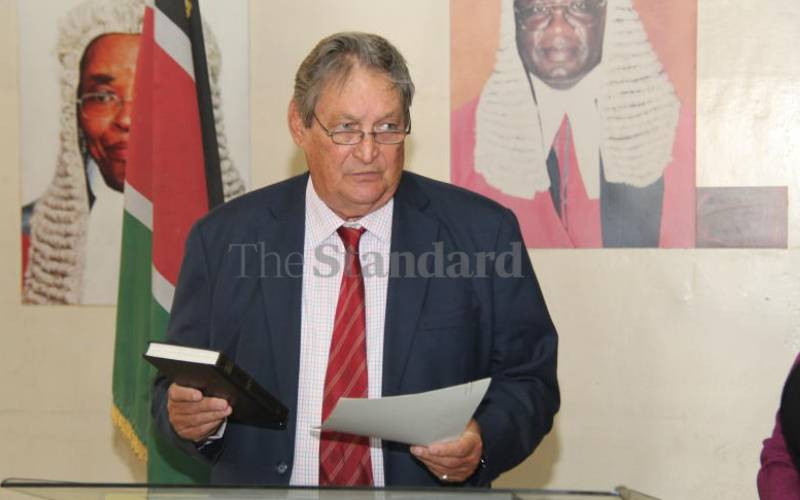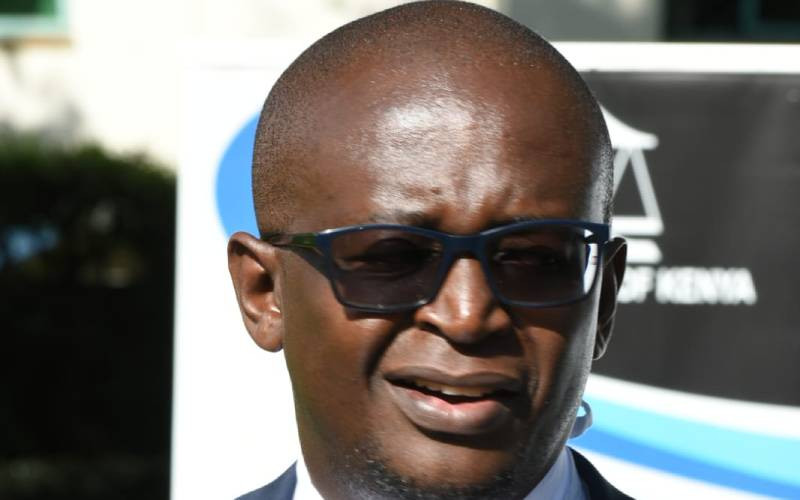Some curious revelations have been coming out of the office of the Chief Justice in the last one week.
Last week, Chief Justice Willy Mutunga signalled that the country could start hiring foreign judges. For in his own words, the lawyers in the country are not competent enough.
Were Mr Mutunga an ordinary person, those comments would just be mere words, but he is the Chief Justice.
It did not end there. The Chief Justice observed that there was rivalry between judges of the Supreme Court (on which he sits) and the Court of Appeal, which has affected the administration of justice.
Claims of rivalry between Supreme Court judges and Court of Appeal judges, particularly in the determination of petitions filed after last year's elections, have been raised.
The Supreme Court is said to occasionally use strong language when dismissing the reasoning of the Court of Appeal and siding with the High Court, a lower court.
That should not be the case because all cases are lost or won on account of evidence adduced in court.
Yet it seems like the judges have been trying to outdo each other in proving who is better than the other and in the end justice has been the unfortunate casualty.
Added to the mistrust judges appear to be having for each other and their subtle power plays, the picture created echoes that old adage: that the more things change, the more they stay the same.
Dr Mutunga was given the job after a competitive hiring process and many saw in him a new broom that would sweep the hidden corners of the Judiciary and build a justice system that is unrivalled in the history of the country.
On that score and given what is playing out in the corridors of justice, the jury is still out.
For one, the 2010 Constitution freed the Judiciary from Executive control. But it seems that it has remained mired in corruption.
In 2003, retired Chief Justice Evan Gicheru received a report from a task force led by Justice Aaron Ringera that outlined the extent of corruption in the courts, a malady which, to date, still chokes the Judiciary.
His predecessor has admitted that the Judiciary still drips in corruption.
While acknowledging that the Judiciary was understaffed, Mutunga also blamed part of the delays in concluding cases on poor preparations by both the police, prosecution and the lawyers involved.
Stay informed. Subscribe to our newsletter
Some of the delays may have been caused by judicial officers' attitude to work; late attendance, absenteeism, the summer vacations and transfers.
That is an administrative function.
The Chief Justice should therefore vigorously carry on with the reforms he initiated following his appointment and free the Judiciary of what is holding it back.
It is imperative that Mr Mutunga takes full charge and builds a team that is ready to administer justice fairly and promptly instead of making appeals that could very well be ignored.
While the intention of hiring foreign judges is noble, it could easily cause friction and acrimony and slow the wheels of justice.
The country has enough well qualified lawyers that can be appointed judges.
 The Standard Group Plc is a
multi-media organization with investments in media platforms spanning newspaper
print operations, television, radio broadcasting, digital and online services. The
Standard Group is recognized as a leading multi-media house in Kenya with a key
influence in matters of national and international interest.
The Standard Group Plc is a
multi-media organization with investments in media platforms spanning newspaper
print operations, television, radio broadcasting, digital and online services. The
Standard Group is recognized as a leading multi-media house in Kenya with a key
influence in matters of national and international interest.
 The Standard Group Plc is a
multi-media organization with investments in media platforms spanning newspaper
print operations, television, radio broadcasting, digital and online services. The
Standard Group is recognized as a leading multi-media house in Kenya with a key
influence in matters of national and international interest.
The Standard Group Plc is a
multi-media organization with investments in media platforms spanning newspaper
print operations, television, radio broadcasting, digital and online services. The
Standard Group is recognized as a leading multi-media house in Kenya with a key
influence in matters of national and international interest.








